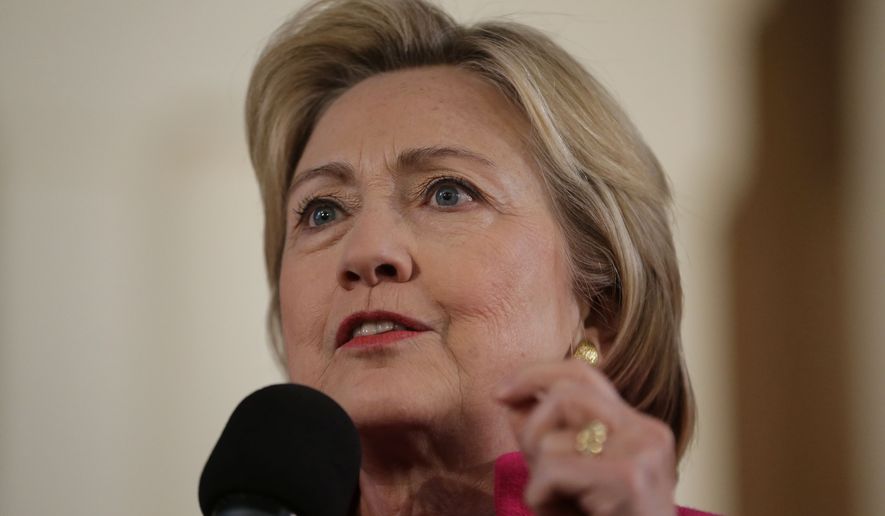A key Hillary Clinton adviser told her that she may have to consider resigning as secretary of state after President Obama was caught telling Russia’s president off-mic early in 2012 that he could make more concessions on missile defense after November’s U.S. elections.
In addition, Mark Penn told Mrs. Clinton that Mr. Obama’s not-so-secret words “may be about the stupidest thing ever said by a president in foreign policy.”
Mr. Penn’s advice was made public on New Year’s Eve as part of the court-ordered release of Mrs. Clinton’s emails from her time as America’s top diplomat, when she used a private email server rather than the offered state.gov account. This had the effect of rendering incomplete years of document searches under open-records and oversight laws.
Mr. Penn, who did polling for President Bill Clinton for six years and for both Mrs. Clinton’s U.S. Senate campaigns, was reacting to a March 26 conversation at a summit in South Korea between Mr. Obama and then-President Dmitry Medvedev, widely viewed as a caretaker for longtime Kremlin strongman Vladimir Putin.
When he thought microphones were turned off, Mr. Obama asked Mr. Medvedev to tell Mr. Putin that missile defense and other issues can be solved “but it’s important for him to give me space,” to which Mr. Medvedev replied in English, “Yeah, I understand.”
“This is my last election,” Mr. Obama said. “After my election, I have more flexibility.”
The Russian leader responded, “I understand. I will transmit this information to Vladimir.”
Mr. Penn went ballistic in an email to Mrs. Clinton that very morning, under the subject line “if true.”
“To explicitly say he is laying low on nuclear defense policies because of his election right now and tell your opponent that is to politicize all foreign policy, evidence [of] weakness that can be exploited by others, and undermine the administration’s credibility,” wrote Mr. Penn, who was chief strategist for Mrs. Clinton’s 2008 presidential campaign.
Mr. Penn then warned Mrs. Clinton that “you will surely be asked if your decisions and positions are part of the election campaign and bat that down definitively.”
While Mr. Penn fretted near the end of the email that “maybe I’m overreacting,” he tells Mrs. Clinton that she “may even consider resigning if that’s the case” that her foreign-policy decisions are motivated by domestic politics.
Mr. Penn said in the email that while U.S. foreign policy can’t be one thing before an election and another after, it really can’t be seen that way by adversaries or enemies.
“Certainly you can’t tell your opponents that or from al qaeda on down they will figure out how to use that,” he wrote.
• Victor Morton can be reached at vmorton@washingtontimes.com.




Please read our comment policy before commenting.